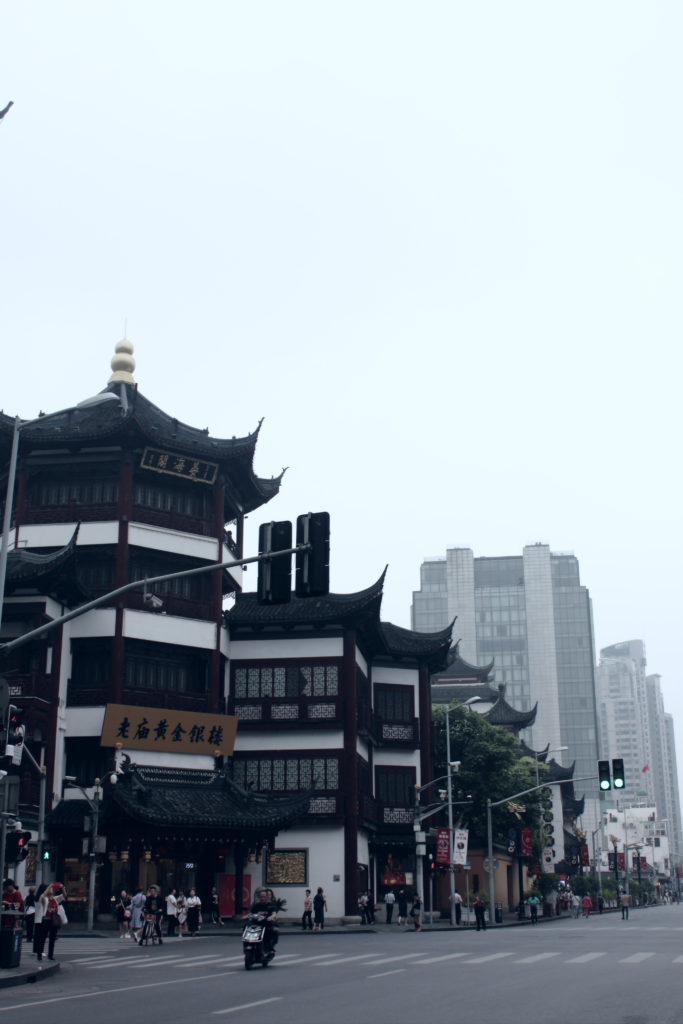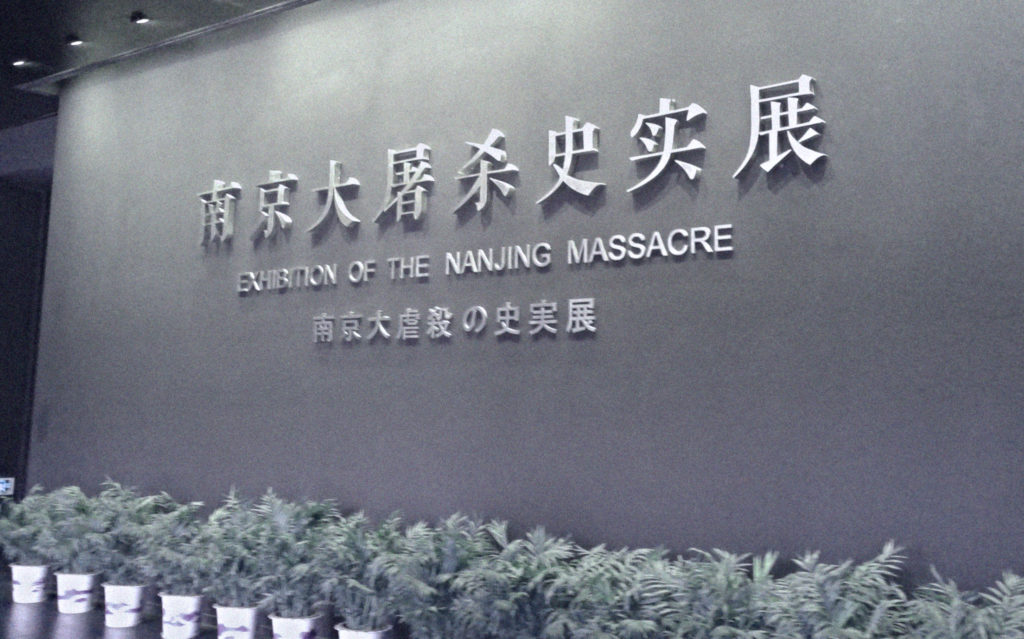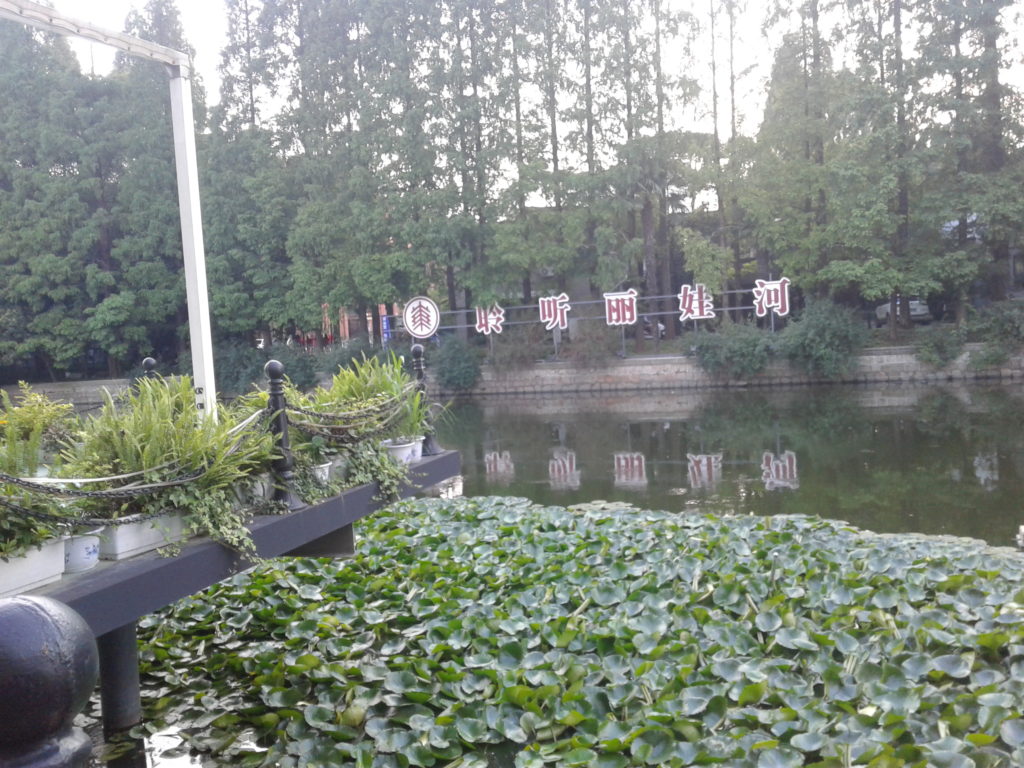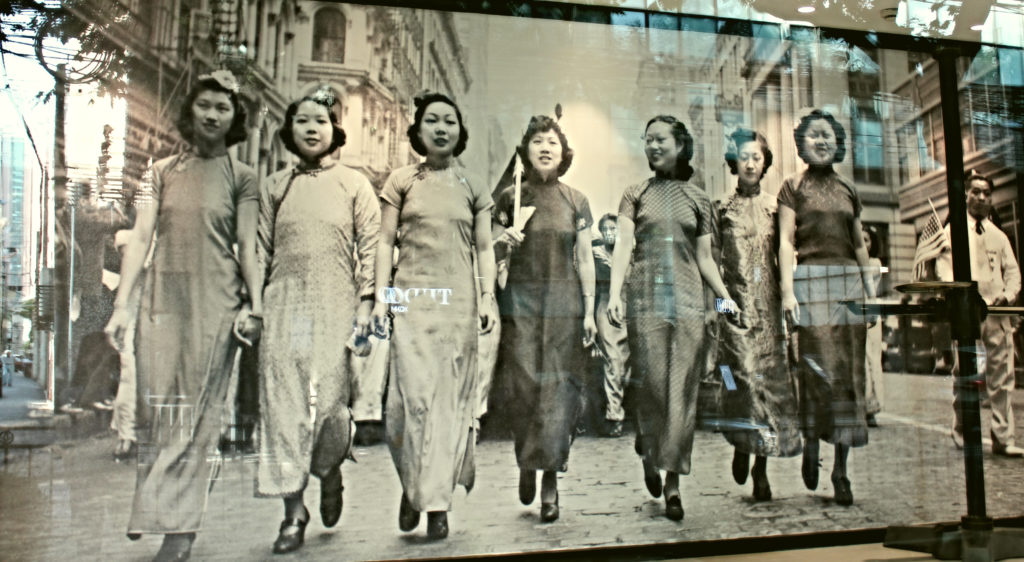Touchdown. And boom. I’ve landed in Shanghai. I am never quite good with first impressions because I never quite expect something to be a first. The city existed before my arrival and it will still continue to exist even after I leave. My arrival into it is just one small event within its life, so there is nothing to give much of an expectation for except to come in with a willingness to take in everything as much as I can. Even though I have visited this country before (only with the guidance and help of my parents in a different city), now as an independent traveler, I feel like a newcomer, perhaps even an alien. The first thought that popped in my mind was—“Wow, so this is what it feels like to be in a room full of Asians. Wow, I’m not really used to being in this kind of situation and in a weird kind of way I feel very uncomfortable communicating with anyone and insecure that they will see my struggle to do so.” My vulnerability was that I was suddenly part of the majority, and yet, every part of my gestures indicated that I wasn’t. Whether that means I’m over thinking too much about minuscule matters, my first impression of China was one that more so indicated the uncertainty of placing myself in it. In my eyes, I suddenly felt magnified as if I was being observed closely enough that people could see right through me and all the insufficiency I possessed. “But no, confidence. The more comfortable you are with yourself and wearing your weaknesses out loud, the more people will see your willingness to stay true to yourself and communicate with them,” I told myself. So, at that moment, I decided to drop all the physical and metaphorical luggage I had been dragging behind me for too long and say, “Screw it. You might as well do it. All the things that scare you have no hold on you. Go for everything and live with no regrets. Go prove to yourself and other Asian-Americans who possess the same struggle to face their fears and their unique identity. Then make your experience come alive through your words in this blog.”

One of the best parts to Asia is the local food scene; the street is often filled with rows and rows of restaurants buzzing with customers talking (called 聊天 in Chinese) inside. Sometimes, if busy enough, at night there will be little round tables set up around the front of a restaurant where groups of people will sit around to chat, eat, smoke and drink to their pleasure. There is more of a homey feel to the environment as you walk past and see people just trying to relax for the night before it’s time to get ready for another day. Added on to the voices speaking over each other with enthusiasm and laughter (and a tinge of cynicism from the long day), comes the aromas and flavors of Asian food available in a variety of mixtures, and the more you stare at the dishes before you, the more you begin to imagine the amount of labor gone into creating the explosion of colors in them, truly a manifestation of art in cuisine. I absolutely love it. The plethora of and creativity in the food items of Asia are incomparable since the basis of creating them are usually based on one factor: throwing in whatever works, which sounds far from logical, but a great challenge to overcome when a wonderful dish comes out of it. What makes the food more satisfying is when you can enjoy it within the beautiful scenery only specific to the area of Asia. The deep landscape of luscious green trees within the mountain of forests looming into the sky captures eyes. Every time I look out at them, it seems as if their leaves are trying to hide something precious that isn’t meant to be found, and I am intrigued to keep looking out to find something out there. It is these same parts of greenery that surround some of the many historical and cultural sites visited as planned excursions during my study abroad program. Each visit to such locations is the collection of a gem into a past that shaped parts of today’s China, not to mention a beautiful addition to the already breathtaking landscape. There was one stop we made in the city of Nanjing that left the deepest impression on me thus far—The Exhibition of the Nanjing Massacre—for many reasons, one of them being that I love ‘tourist’ sites that are not too loud. And for the right reasons, the exhibition of such a historical catastrophe was necessary to have an absence of noise. Also, considering the fact that I am not easily an emotional person and upon visiting this special memorial, I was given such a deep impression that at one point I had to do everything I could to hold back my tears, and all it took was a sentence on a wall that went something along the lines of this: “China will, and has always been, a country that will seek and direct themselves towards peaceful progression. The purpose of this exhibition is not to live on the grudges of the past but to give honor and recognition to the victims and the lives lost in the Nanjing Massacre.” Maybe it was because such a huge killing (possibly close/similar to the scale of the Holocaust) just doesn’t sit well with anyone, me included. Or maybe it was because something about those words spoke to the inner me who always struggled to understand where she belonged—that those words extended out to me and allowed me to feel the togetherness of what it means to be Chinese. And it was a beautiful feeling that I don’t ever want to forget, a sentiment that will be a precious keepsake and reminder as I prepare to return to the States.

Adjusting to life in China brought its struggles, but for the majority of my time here, I will admit I have had the upper hand in doing so somewhat smoothly, and I owe it all to my parents who maintained a household that preserved many Chinese elements in our lifestyle (and also because I do look East Asian, I do understand that it might be tougher for someone who stands out more in the crowd). Using the Chinese language to get around the city hasn’t been too tough; though I can blend in easily, there are some unnatural speech mannerisms that sometimes come out, and as a result, prompt people to ask if I am from Singapore or Taiwan. Other than that, the locals have been pretty welcoming and understanding when they see me trying to translate for the other people in my study abroad program, and just once, mistaken me as a native Chinese because of it—for that, it makes me very glad that my efforts haven’t gone to waste. For the most part, people here are pretty open to foreigners, eager to learn English, and intrigued to engage in conversation. “If they do appear standoffish”, the Chinese director of my program told us on the first day of the program, “it is probably because they are a little scared to directly come up and talk; other than that if they’re rude, they are just rude people just like you’ll get anywhere else in the world.” When it comes to having an extended conversation though, that is when I get a little rusty and things end up getting a little embarrassing. But, it is through this trip that I have come to love the opportunity of taking classes that are fully immersed within Chinese culture and language. Though there are differences between Chinese and American education, such as a bigger emphasis on the importance of education, showing respect for teachers and their knowledge, and staying attentive/polite during class in China, there isn’t anything that has left me with direct culture shock, but rather a what-if into how different my life would’ve been if I had grown up in the environment my parents left so many years ago. My Chinese teacher was a young woman around the age of twenty six (around the same age as my sister), so she seemed quite relatable to the rest of the twenty-something girls in my small class. After class, she would occasionally make plans to hang out with us, whether that was going to a coffee shop on campus to exchange English/Chinese lessons, KTV (karaoke) in the mall close to the university, or taking us to a local Shanghai restaurant nearby. On class days, she would sometimes bring us tiny Chinese desserts. Furthermore, because there was only five girls in my class, it gave us a chance to create deeper conversations about certain lessons or topics and get to know each other more. Personally, the intimacy of the class allowed me to take more away from it and carved an experience that I enjoyed.

There are many habits within my Chinese classroom that familiarize me with some of the habits my parents possessed in my household as they raised me, and I am reminded of the importance of having this experience and using it to further my growth as an individual. And, although in the beginning, there were people who didn’t really understand my motives in coming to China of all places when it seemed like I already had exposure, I know I wouldn’t have come here without feeling like something important is missing from my life. There was never an explanation or an introduction into my roots; it was just always there and I could either accept or reject it while simultaneously never fully understanding it. I don’t want to pretend to have a thorough understanding of the Chinese language and culture either when I had no exposure to it outside of my parents growing up—even then, I grew far apart from it when more outside influences came in, directed my attention elsewhere, and English became the necessity and habit in my life—so there is much that I need to learn by myself as I grow into what you can call my ‘coming-of-age’ stage.

As the preparation to return home looms closer, I have very mixed and divided feelings. But I do not for one second regret making the decision to come to Shanghai because I very much needed this for myself. As I project myself ten years into the future, I see China being a huge part of not only my life but my career. Whether as a second home or a place for more job opportunities, I will always persist to have love for and learn about China and its influence on me. So here’s to the year of twenty and facing the parts of myself that scare me the most. Cheers.

